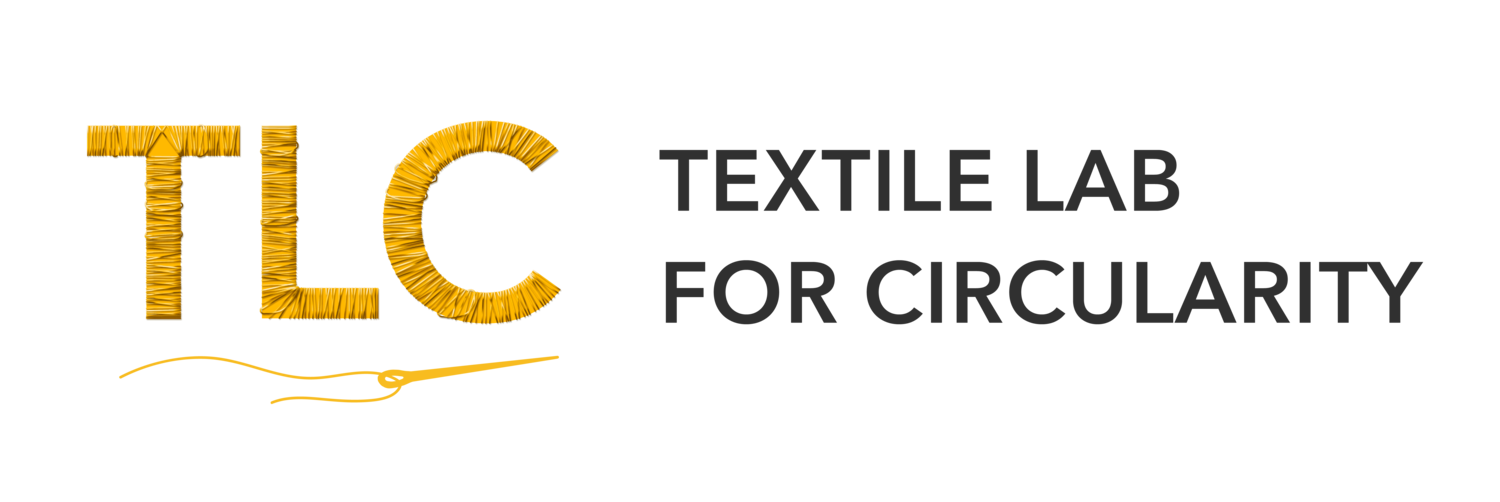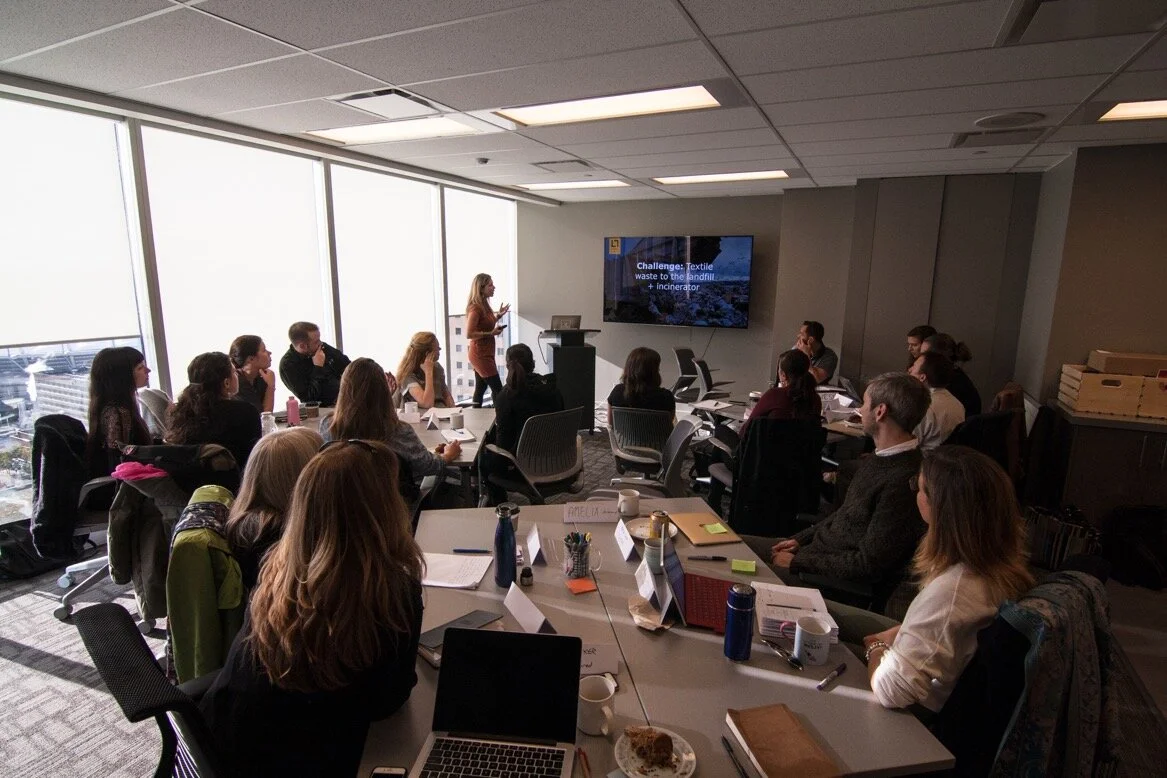Here at the TLC, we strongly advocate for environmental and social sustainability. Many of the same societal structures that put our climate in jeopardy (such as overconsumption and fossil fuel pollution) have also impacted the wellbeing of populations around the world. In order for environmental initiatives to be sustained, human needs have to be met. We are inspired by projects that beautifully weave together environmental initiatives with social justice action. This fosters a more regenerative environment where nature and humans can both thrive.
Circular Allies: Basecamp Repairs is Extending the Life of Outdoor Gear through Repair
Victoria-based Basecamp Repairs was born when Alex and Nic met working for a national outdoor equipment retailer and realized many products were being returned or thrown away when they could be easily repaired. They had already been repairing their own gear for years, so why couldn’t they help others as well? The Basecamp mission is to reduce waste by extending the lifespan of outdoor equipment through repairs and maintenance.
Circular Allies: Shyne Eyewear is Making Affordable Eyewear Using Textile Waste
Shyne Eyewear is a student-run social enterprise from the University of Ottawa that aims to build a community of change makers who can move fashion forward into a sustainable future.
Circular Allies: Up Pet is Making Pet Accessories out of Landfill-Destined Textiles
Up Pet is a Canadian brand, creating upcycled accessories for pets and their humans. Up Pet officially began in 2019, while founder Clavia Castilhos was doing her post grad in sustainable fashion production at George Brown. She already had 10+ years experience working in the fashion industry in Brazil, and understood the nature of the industry’s challenges, especially textile waste. She was excited to learn about the Salvation Army challenge encouraging designers to upcycle post-consumer textiles, particularly home textiles and linens, to divert them from landfills. Being a lifelong pet lover, Clavia had also noticed a gap in the market for sustainable pet accessories. And so Up Pet was born!
Circular Allies: Shred Neoprene
Shred Neoprene is a social enterprise based in Tofino, BC with a mission to collect, grind and upcycle neoprene through innovative solutions and partnerships in Canada. Karen Hendry, Shred’s passionate founder, started the organization in 2021 after working in the surf industry and volunteering with Surfrider Foundation for many years, and learning about the wetsuit waste problem. With Tofino being a popular surf destination for both locals and tourists, surf shops and resorts offer wetsuit rentals year round, resulting in a high turnover of wetsuits. While the Surfrider Foundation has been collecting wetsuits through their Wetsuit Reincarnation Program for recycling in California since 2017 (saving 4.5 tonnes of neoprene from landfill), Hendry saw the need for a more local solution.
Circular Allies: Fashion Takes Action
Fashion Takes Action (FTA) is a non-profit organization established in 2007 to advance sustainability in the fashion industry through education, awareness, research and collaboration. They have gained global recognition over the last year through their successful WEAR Webinar Series, and the release of their latest report A Feasibility Study of Textile Recycling in Canada. Here at the Textile Lab for Circularity we are all about collaboration, and scaling existing projects that move the dial towards textile circularity. FTA Founder and Executive Director Kelly Drennan sits on the TLC’s expert advisory panel, and when we heard they were running a textile recycling project in Eastern Canada, we knew we wanted to get involved.
Building Capacity and Taking Action - Our New Programs
We’ve been listening to your feedback! As outlined in our previous post, we’ve refined our approach based on feedback we have received from our trusted industry network. We are in a unique position, building off of the results of the 2019 textile collaborative, which defined clear strategic leverage points. We are excited to announce our new programming, designed to address key pain points of the industry, while taking tangible action on our leverage points.
Building Capacity for Collaboration
Through our outreach efforts with local industry, we’ve identified a common thread: organizations want to take action on social and environmental issues, but aren’t sure how it fits into their business model. While pitching the original 2-year Lab, we heard folks asking for more individualized support embedding circular principles into their organizations. We see this as an important opportunity to build the capacity of the regional industry, and a key first step in fostering meaningful collaboration in the future.
What is a Social Innovation Lab?
Social labs are a leading edge method of stakeholder engagement, where “unlikely allies” are recruited and brought together in a space primed for collaboration. Through a series of facilitated workshops, the group will develop a comprehensive map of the social issue in question, and identify “leverage points” from which they can take action. Social labs are emergent in nature, and allow participants to pivot with the latest information rather than being tied to outdated plans developed in the past. Once the situation is adequately mapped, the group can then begin the iterative process of prototyping solutions.
Opportunities for the Circular Economy After COVID-19
Now more than ever consumers and businesses are aware of the effectiveness of collaboration and the interconnectedness of our global economy. We are aware of the risks and lack of resilience in our economic structure and existing supply chains. The private and public sector alike are looking for ways to build a resilient, low carbon and prosperous recovery with over 50 global leaders signing an agreement with the Ellen MacArthur Foundation to build back better with the circular economy. What does this look like? What opportunities are there for the circular economy in the post COVID-era?
Innovation & Investment in Waste Management
The pandemic has revealed an opportunity and urgent need for innovation and significant investments in the recycling, composting and waste management space. Not only will solutions be needed to manage existing downstream waste, but also to develop new upstream manufacturing systems to avoid future waste. Many organizations have already taken up this challenge:
Terracycle has created collection boxes for used PPE waste, which will be cleaned, melted down and molded into new products.
The Government of Canada has announced two new industry challenges to develop more compostable or recyclable PPE, as well as the systems to recycle them.
New York based Zero Waste Daniel has begun making masks out of design room scraps. Small scraps that may be unsuitable for garments, can be sewn together to create unique mask designs, while diverting the waste from landfill.
French startup Plaxtil has developed a way to recycle masks and PPE into new protective items such as mask fasteners, door openers, protective visors, etc.
Economic Opportunity for the Sharing Economy
With decreased discretionary spending during and post-pandemic, retailers will need to re-evaluate their business models. Circular business models that incorporate rentals and prolong the lifetime of a product can grow revenue streams, enhance customer loyalty, and allow retailers to tap into a broader customer base. For example, retailer take-back programs and resell allow brands to generate a second revenue stream from a single garment and access a price-sensitive consumer that they were unable to reach with the original sale of the garment. Rental and sharing businesses are already recovering, despite initial COVID-19 setbacks. Airbnb has experienced a fast comeback, with some experts predicting that it will be the preferred accommodation option over hotels post pandemic. China’s YCloset, a clothing rental company has seen recovering sales as pandemic restrictions have eased up. This provides hope that other markets will experience a similar upturn as restrictions are lifted.
Resilient Supply Chains
Just-in-time supply chains traditionally strive to balance cost with responsiveness and resiliency tends to fall to the wayside. However, the global pandemic has brought to light the risks associated with these just-in-time models and the need to increase resilience. While there is certainly opportunity to bring supply chains closer to home reducing transportation emissions, perhaps an even more powerful outcome will be increasing collaboration with suppliers to build a more resilient system that emphasises worker health and safety and environmental performance.
Social Impact Business - B Corps, etc.
The social economy focuses on economic practices that are sustainable and inclusive.The social economy has played a significant role in mitigating the economic and societal impact of COVID-19 by providing innovative solutions that complement government initiatives. The demand for this economy has never been greater as the post-pandemic need for innovations that contribute to social and economic transformation will be significant. With increased governmental support and financial tools available to the social economy there is an opportunity now for businesses to step up, and join the growing group of social enterprises.
If the pandemic has done anything, it has woken us up to the reality we are facing. Beyond the pandemic is a looming climate crisis begging for immediate action. Climate change will only increase the risk for future disasters and public health crises. We need to take immediate action, and the transition to a circular economy is a crucial step. Going back to our initial question: Can we continue to advocate the transition to a circular economy during a global health crisis? Yes we can, and must. It’s time to build back better, not only to get through this pandemic, but to help prevent future public health and environmental crises.
References
Bosa, Deirdre. “Airbnb Is Poised for a Comeback after a Brutal Spring.” CNBC, CNBC, 16 June 2020, www.cnbc.com/2020/06/16/airbnb-poised-for-comeback-after-brutal-covid-19-spring.html?utm_medium=website.
Chan, Emily. “Will The Fashion Rental Market Ever Recover From Covid-19?” British Vogue, British Vogue, 16 May 2020, www.vogue.co.uk/fashion/article/will-the-fashion-rental-market-recover.
“Covid-19 Insights - Build Back Better with the Circular Economy.” Ellen MacArthur Foundation, 2020, www.ellenmacarthurfoundation.org/news/covid-19-insights-build-back-better-with-the-circular-economy.
Fox, Slone. “TerraCycle Solution Aims to Combat Surge in PPE Waste as Result of COVID-19.” Recycling Product News, 8 June 2020, www.recyclingproductnews.com/article/34058/terracycle-solution-aims-to-combat-surge-in-ppe-waste-as-result-of-covid-19.
Saltmarsh, Abigail. “Face Masks: New Solutions to Reduce Their Negative Impact on the Environment.” MedicalExpo e-Magazine, 16 Nov. 2020, emag.medicalexpo.com/face-masks-new-solutions-to-reduce-their-negative-impact-on-the-environment/.
“Social Economy and the COVID-19 Crisis: Current and Future Roles.” OECD, 30 July 2020, www.oecd.org/coronavirus/policy-responses/social-economy-and-the-covid-19-crisis-current-and-future-roles-f904b89f/.
Sullivan, Paul. “Investing in Social Good Is Finally Becoming Profitable.” The New York Times, The New York Times, 28 Aug. 2020, www.nytimes.com/2020/08/28/your-money/impact-investing-coronavirus.html.
Whelan, Tensie, and Carly Fink. “The Comprehensive Business Case for Sustainability.” Harvard Business Review, 1 June 2017, hbr.org/2016/10/the-comprehensive-business-case-for-sustainability.
Wijayasundara, Mayuri. “Opportunities for a Circular Economy Post COVID-19.” World Economic Forum, 22 June 2020, www.weforum.org/agenda/2020/06/opportunities-circular-economy-post-covid-19/.
Covid-19 Waste and the Circular Economy
Despite Covid uncertainty, it is clear that new habits such as social distancing and wearing face masks are here to stay. While there is no doubt that face coverings help prevent the spread of the virus, we can’t help but wonder what the long term implications of mask-wearing are on our health, and the health of the environment. Is it possible to navigate the global pandemic safely, while also continuing ahead with waste diversion measures? Can we continue to advocate the transition to a circular economy during a global health crisis?











